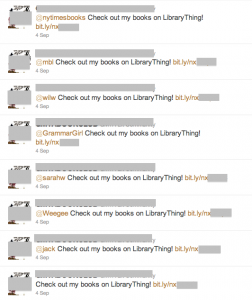Anyone can go to Google and search for a particular piece of information. Sometimes they luck out and find what they were originally looking for, while other folks end up getting sidetracked by a website full of cute fluffy kittens.
As authors, we tend to have limited resources, particularly time. Using efficient search techniques, our precious time can be spent on writing the next chapter instead of searching for details on how you remove the clip from an AK-47 assault rifle.
Google engineers and coders included many advanced search operators when they built their search engine. Using operators, we can focus our search on very specific terms or files.
Here are a few of the common operators:
- + The plus sign indicates something is required.
- – The minus sign indicates something is to be excluded from the search results.
- (x|y) Groupings – in this case, “x” OR “y”, are acceptable.
- inurl: Something that is part of a website URL.
- intitle: Something from the title of the web page
- filetype: This indicates the result should be a particular file type.
Going back to our example, I put in the following search term:
filetype:pdf +(ak47|ak-47) remove clip
In English, the search term means:
Find an Adobe PDF file that contains either AK47 or AK-47, plus the words “remove” and “clip”.
On the first page of the results, I discover a PDF document that not only shows how to remove the clip from an AK-47, but how to do a complete teardown for cleaning (with plenty of photographs for those who are not familiar with the rifle.) Excellent! Now your zombie killer can clean her AK-47 properly.
Let’s try something that can be useful for the average author. I want to find pirated copies of a novel. We’ll use Stephen King’s novel, “Under the Dome”, as our test subject.
My very focused search term is:
inurl:(htm|html|php) intitle:”index of” +”parent directory” +description +size +(mobi|pdf|azw|epub) stephen king under dome
What this means in English:
Looking on web pages that have “htm”, “html” or “php” in them, make sure the title of the web page is “index of”, and make sure the web page has the terms “parent directory”, “description”, and “size”. Also, make sure there are ebook files on the page (mobi and azw are for Kindle; PDFs; or ePub ebooks for the Nook, Sony or Kobo reader). The specific thing I am looking for has the words “stephen”, “king”, “under” and “dome”.
Most of the pirate dump sites are just a plain automatically generated web page with links to the files. These pages usually contain common terms like “index of”, “parent directory”, and “size”, which makes it easier to find the pirate sites.
Running the above focused search term, I get three results. The second one has a freely downloadable pirated copy of Stephen King’s novel, “Under the Dome”.
Personally, I use the filetype: operator almost daily. I can pick the exact file I want to find, usually a PDF or a Microsoft Word “.docx” file by typing filetype:pdf or filetype:docx in the search window.
Another operator I use all the time is the “-“, or NOT, operator. If I was searching for Rocky Wood, an author and HWA president who passed away last year, and Horror, I may end up with links to all kinds of unusual things, such as Rocky (the boxer), Norwegian Wood, and the Rocky Horror Picture Show. I can tailor my search like this:
+”rocky wood” -boxer -“rocky horror picture show” +horror
In English:
Find instances where the words Rocky and Wood are together, but ignore any pages that have that goofy musical and any references to boxers. Also, please make sure the word “horror” appears on the page.
Note that it is easy to get so focused that you end up with no results. Running the above query, I get only five pages back. If I wanted more pages, I could try this query:
+”rocky wood” +”horror writers association”
I get seven times more relevant pages using the second query. If your results are too small, try making your query less restrictive, or try using other key words that are apropos to your searching desires.


